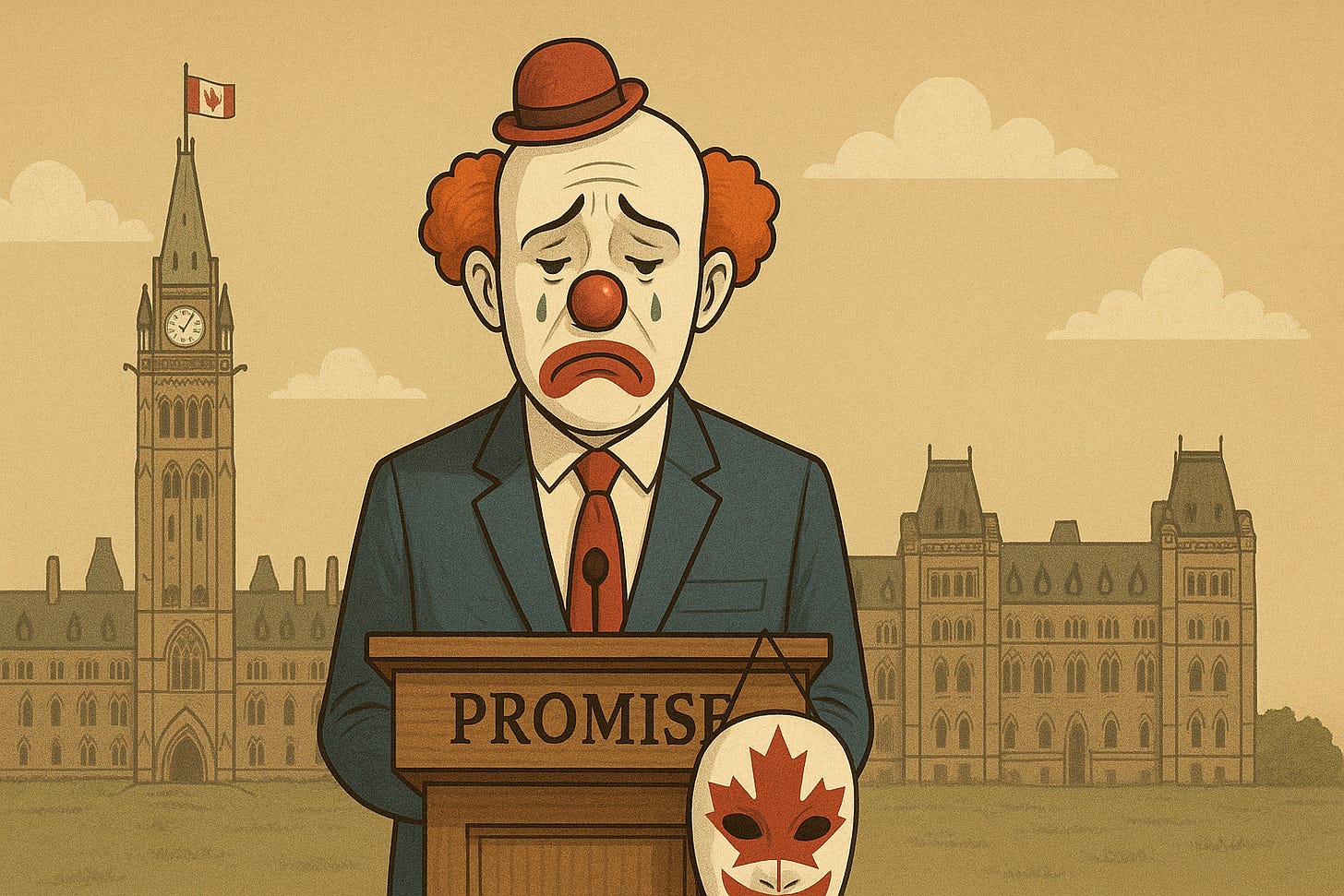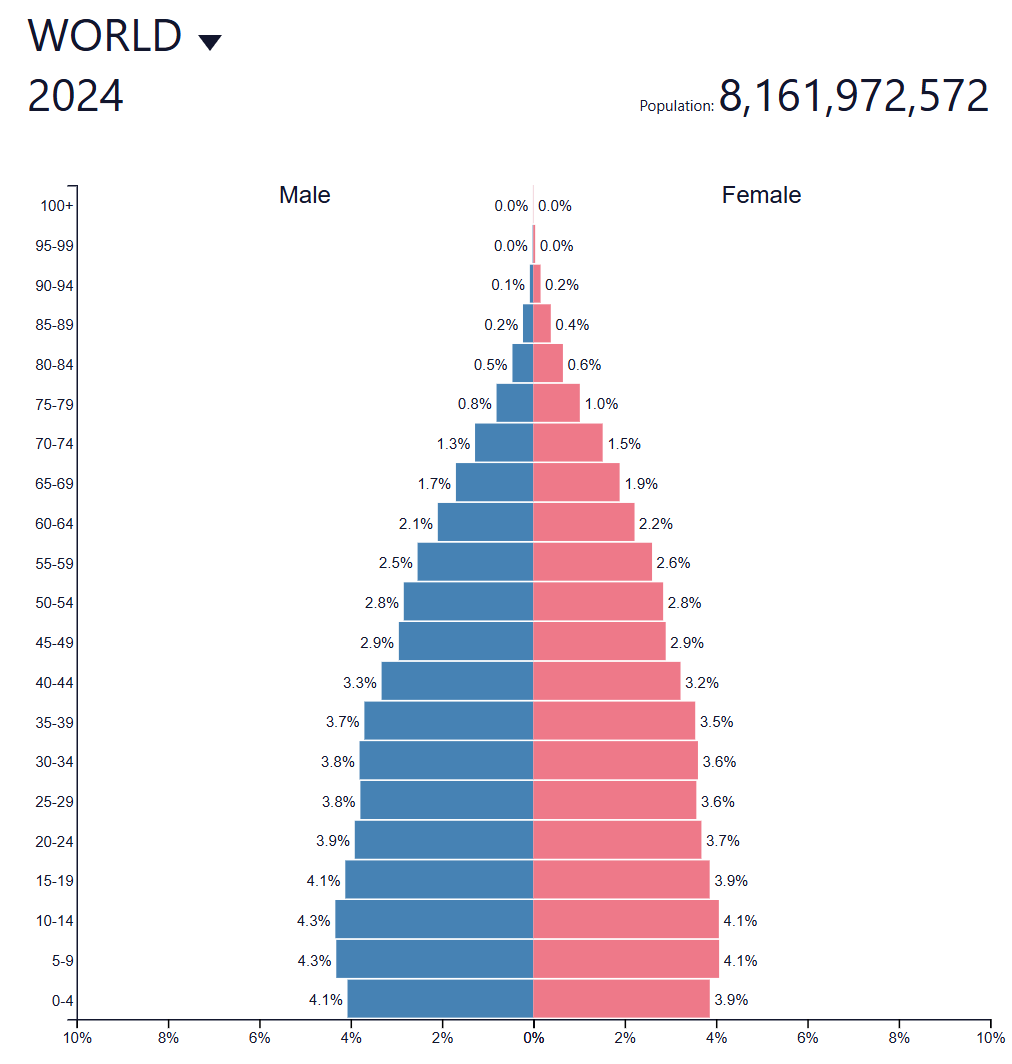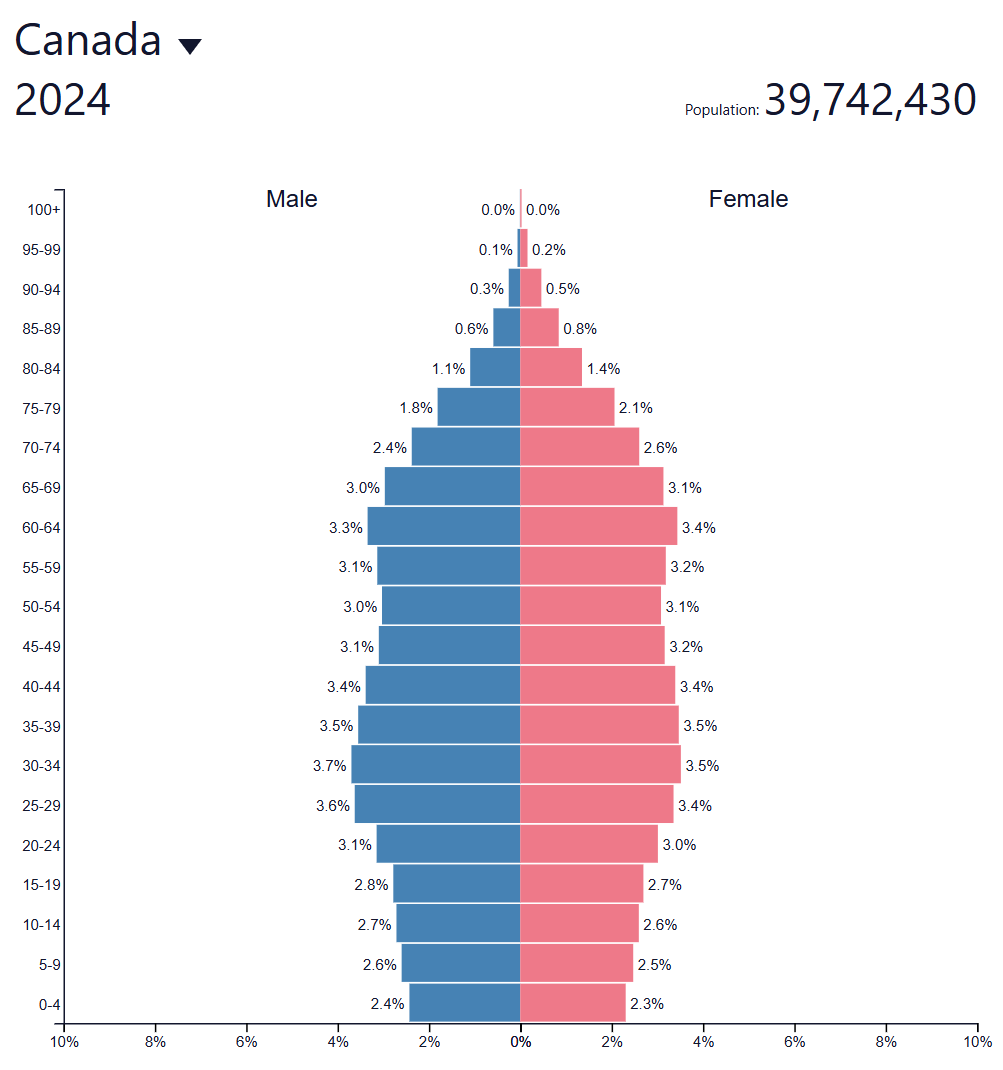Is Canada the WEF's Waterloo?
Coming election to prove decisive for Unaccountable Globalism
The knock-on effects of Trump’s return to office are continuing to roil global trade and global players. France’s debt has been downgraded and Parliament is considering a 6th republic. Britain’s government is dead on arrival. Germany is preparing to suspend the welfare state in order to re-arm. Japan, South Korea, Argentina and Italy cozy up (with right-winger Meloni boasting the best-performing economy in the EU); Brazil, India and South Africa float in the wind. There is no clear path forward for export-led economies where global demand is cooling in line with a global population that could plateau by 2050.
In fact, it is becoming apparent that actual births may have peaked about 10 years ago (coincidentally with the emergence of Trump signaling the beginning of the end for America-driven globalization). The implication of this is essentially that aggregate demand will effectively peak in about 25 years, when those individuals are 35, hence at the age where household formation (and the concomitant spending involved) begins to attenuate. This, again, lines up with 2050 as a terminal date for the current global order.
Is this broader context, Canada has among the most unfavorable demographics of the developed world, with a population bulge at 30-35, despite massively intrusive and unintegrated immigration in an attempt to correct the absence of relative demand as that group ages out of peak consumption.
In that mode, Canada has also happened to be a bastion of WEF-guided policy, including increasingly intrusive health policies, efforts to simulate a guaranteed minimum income (through COVID-era employment insurance), an unwillingness to cede practically anything (even dairy cartels) in trade negotiations with the United States, and broader issues of de-banking, civil liberties, effectively unrestricted immigration, land acknowledgements leading to title confiscation (yes really), collapsing socialized medicine, and a basic lack of social or economic coherence except where virtue signaling is first and foremost demonstrable.
Mark Carney, by the acclaim of most supporters, was elected to “fix” the situation. While he encounters resistance within his own looney-tunes caucus, he is also attempting to stave off economic integration with the United States (at the cost of overall economic efficiency) while also inhibiting the ability of Canada to navigate any and all future crisis through profligate Keynesianism for which he claims not to have support in parliament.
It is clear that, lacking a majority consensus, Canada will effectively follow the fate of India, Brazil and South Africa as economic and political actors free to the highest bidder, with no grand strategy in play and few if any options except doing that which is most satisfactory to a plurality of the electorate in a given calendar year. Alas, this is the WEF agenda incarnate, because it reduces populations to dependents amidst a global cartel of experts, technocrats and wealthy industrialists. It has consolidated power in Europe (at the cost of economic growth), countries like Italy show that it is possible to break away, while countries like Canada are being prepared as an example of how they can be brought back in the fold.
Canada is a canary, already in the coal mine, waiting to discover if it has another breath of fresh air remaining.




